Traveling Through the Land of the Eternal Spring: A Literary Journey – by Mark D. Walker
Several of my fellow writers asked why I’m so passionate about Guatemala and its people. The answer is simple: as a young man out of college, I lived in a Guatemalan village as a Peace Corps volunteer. I also married a Guatemalan, Ligia, who has been my life partner now for over 48 years. My children were all born in Guatemala. So, you might say Guatemala is in my blood. And the importance of Guatemala to us has become clearer as a growing number of Central Americans are fleeing their communities in the hopes of a better life here.
I arrived in the highlands of Guatemala as a Peace Corps Volunteer in the early 70s and as I describe in my book, Different Latitudes: My Life in the Peace Corps and Beyond, a third of which takes place there. Each morning at dawn in the village of Calapté, I’d stroll over to a nearby family for breakfast, which cost me twenty-five cents.
One morning I awoke with a horrendous stomach cramp, I was sweating profusely and only semiconscious. I didn’t have the strength to get out of bed, let alone walk the forty-five minutes uphill to the only daily bus that passed by. The Peace Corps staff had assured me that if I ever got ill or had an accident, I’d be medevacked in a helicopter, which sounded good at the time until I realized that the telegraph system was down and the only phone in the community didn’t work. Basically, I was up the proverbial creek.
Fortunately, when I didn’t turn up for breakfast, Doña Martha, who was like a second mother, came looking for me with several friends and found me in bed in a daze and gave me a series of herbal drinks and indigenous wisdom. These three women saved my life, and within three days, I was hiking up the hill to catch the bus to the Peace Corps headquarters in Guatemala City.
My medical ordeal was too risky to remain in such a remote village, so the Peace Corps staff sent me to San Jeronimo, closer to communication and potential evacuation roads. Shortly after my arrival, my eyes locked onto a strawberry blond girl who, it turned out, was visiting her father’s small horse ranch.
I was smitten at first sight, but like a dumb gringo, I wasn’t sure how to proceed with this pretty girl. A Guatemalan friend from my new village made the introductions: her name was Ligia and she agreed to have coffee with me.
“So where did you go to school?” I wanted to find out if she’d gotten through high school.
“Well, actually, I have several degrees. One is a teaching certificate, and the other is a degree in agricultural engineering from the University of San Carlos.”
Then I threw in a trick question about what she does in her spare time, thinking she hung around her house, “Oh, I love drama and have been involved in the university theater. Carmina Burana is by far my favorite play.”
“Carmina who?” I thought. Obviously, I was in over my head, but I didn’t let that stop me, and within five months, we were married. We often visited her grandfather’s coffee plantation, “San Francisco Miramar” on the side of the volcano, Atitlán.
On one of those visits over Christmas, I came across my five-year old daughter, Michelle, in the “Big House,” hugging her gift, an Airedale puppy. Directly behind her, pushed up against the screen door, were a dozen small children. Although I couldn’t distinguish their faces, these were the plantation workers’ children who stood dressed in simple cotton shirts, jeans and flip-flops silently peering into the room filled with unopened gifts and an ornate Christmas tree.
They were so cute, inquisitive, so innocent, yet none dared open the door and come inside. I kissed my daughter on the forehead and continued through the room to a porch on the far side of the “Big House” where I shared the encounter with my Guatemalan wife, Ligia.
As we both gazed up the side of the volcano and took in the sweet aroma of the coffee blooms, I informed my wife that my calling would be to assure that children of the humblest families might receive a decent education and aspire to a career of their choice. peacecorpsworldwide.org/christmas
The Importance of Books
Books have always been an important part of my life. In the Peace Corps, volunteers were given a trunk of books, including works of Dostoyevsky, Tolstoy, and Tolkien, but none on Guatemala. So, when I found out that Guatemala had a Nobel literature laureate, I read Miguel Angel Asturias’s, The President (El Señor Presidente).
Although it was published before I was born, its relevance persists, as it portrays the damaging psychological impact of a totalitarian government and the brutality it will exercise to maintain power—a phenomenon all too real to Guatemalans today.
The dictator depicted in the novel is Guatemalan President Manuel Estrada Cabrera (1898-1920). The author started writing the novel in the 1920s when he was a young law student, but it wasn’t finished until 13 years later, in Mexico, due to strict censorship policies of the Guatemalan dictatorial government.
The author draws from experience as a journalist writing about repressive conditions, as reflected in this passage about the plight of political prisoners, “Two hours of light, twenty-two hours of utter darkness, one tin of soup and one of excrement, thirst in summer, floods in winter; that was life in the underground cells.”
millionmilewalker.com/2021/10/the-president
One of the things that attracted me to Asturias’ works was his interest in the Mayan indigenous population, its culture, myths and legends, and plight, and how all those factors influenced his writing style and subject matter. His father was a judge who clashed with the dictatorship of Manuel Estrada Cabrera and he was forced to send his family to their grandparents in the town of Salamá, which is close to where I met my wife.
This would be the author’s initial contact with Guatemala’s indigenous groups, and his nanny, a young indigenous woman, told him stories of their myths and legends, which influenced his works. His university thesis was “The Social Problem of the Indian,” and he later studied ethnology at the University of Paris. His deep concern for the Mayan culture led to a 40-year project to translate the Mayan sacred text, the Popol Vuh, in Spanish. It also inspired his second novel, Men of Maiz, perhaps his masterpiece, written in the form of a myth that contrasts traditional Mayan customs and beliefs with outside forces pushing, often brutally, for modernization on their terms.
Following the Second World War, the United States increased its presence in Latin America and companies like the United Fruit Company manipulated politicians and exploited land and Guatemalan workers.
In The Green Pope, the second book in his “The Banana Trilogy,” the founder of United Fruit explains that men should be ruled by force or left alone, “They’re governed in order to make them develop, the way children are punished for their own good, for their future development.”
The consequence of this force played out along the waters of the Montagua River where the flood of the dead bodies floated out to sea. The Green Pope, coincidentally, was published in 1954, the same year the reformist government of Jacobo Arbenz, which Asturias strongly supported, was overthrown by a CIA-led coup. Asturias was expelled by the government and fled to Argentina. millionmilewalker.com/2021/11/the-green-pope
Mario Vargas Llosa, a Peruvian author and a Nobel Prize for Literature Laureate, also wrote a book, Harsh Times, about the overthrow of the Arbenz government, perhaps the most seminal event in Guatemalan history.
The author does a laudable job researching the circumstances and enhances an appreciation of reality through the fictional characters he develops. The dialogue between the Guatemalan President and the U.S. Ambassador reveals the power dynamics that existed between the two countries, starting with the U.S. Ambassador:
“Forty communist members of your government,” the Ambassador said with extremely undiplomatic curtness. “I am asking you in the name of the United States to remove them from their posts immediately as infiltrators in the service of a foreign power working against the interests of Guatemala.”
The Guatemalan President glanced at the list, which included some good friends, close collaborators and a few self-declared leftists, many no more communist than he was. To which the President says, “We’re starting off on the wrong foot, Ambassador. You’ve been badly informed…” And ends with, “Have you forgotten that Guatemala is a sovereign nation and that you are an ambassador, not a viceroy or proconsul?”
The press played an important role, along with the U.S. government, in protecting United Fruit against an imaginary, “Red Threat,” as articulated by the head of United Fruit, “What threat? The very same one I have just told you Guatemala doesn’t represent: the Soviet Trojan horse sneaking through to U.S.A.’s back door.”
According to the author, the consequences of this debacle made Guatemala “a frantic country,” gripped by a ruinous and wholly unnecessary antipathy towards something that never threatened and is soon “racing backwards towards tribalism and absurdity.” millionmilewalker.com/2021/12/harsh-times
Guatemalan writer, advocate, and intellectual, Victor Montejo was born in a poor Mayan village in the Guatemalan highlands, where he was a schoolteacher during the bloody Guatemalan Civil War. In 1988, he and his family fled to Mexico and, with the help of members of the Maryknoll Order, he learned English and eventually obtained a Ph.D. in anthropology. I came across him through his book The Adventures of Mr. Puttison Among the Maya, a historic, satirical novel whose principal character is an American adventurer.
Montejo returned to Guatemala in 2004 to influence the direction of the post-Civil War government in its efforts to establish a peace accord; he then won a seat in the Guatemalan National Congress and eventually was named the Minister of Peace. But what impressed me the most was his return to Jacaltenango, Huehuetenango, after he retired.
His book, Voices From Exile: Violence and Survival in Modern Maya History, tells the compelling story of the brutality and forced exile by a military junta. Thirty-six years of violence during the Civil War resulted in over 200,000 deaths and a million people displaced. millionmilewalker.com/2020/06/book
Montejo describes the complex class and ethnic divisions and resistance of indigenous communities on his website:
The interplay of class and ethnicity in Guatemala is somewhat ambivalent. There are class differences among the elite and the ladino (Europeanized local population), and the oligarchy is composed primarily of twenty-two families of European background and most importantly, indigenous people have been rejected as active participants in social, economic, and political life of the country. A hegemonic nationalism has been created in which the ancient Maya are glorified, and the present Maya are disdained and discriminated against.
More recently, the author wrote Mayalogue, as well as his memoir, Entre Dos Mundos (Between Two Worlds). His life and his writing inspired me to interview him and write his profile for Revue Magazine. revuemag.com/2020/10/victor-montejos
The recent HBO documentary, “The Art of Political Murder,” introduced many readers to the author of the book on which it’s based, Guatemalan American writer Francisco Goldman, whose mother was Guatemalan and his father Jewish American.
The Emmy-nominated HBO documentary closely follows Goldman’s book, a thorough dissection of the sensational murder of Guatemalan Bishop Juan Gerardi in 1998. Days before the brazen murder, Bishop Gerardi published a detailed account of the country’s military involvement in the atrocities committed during Guatemala’s Civil War. millionmilewalker.com/2020/06/book-review
Goldman provides considerable insights into the writer’s role in sharing his reality:
I think everything you are, everything that engages you, eventually comes to bear on the novel you write. I think the creative energy in novel writing, obviously, comes from tension. From trying to fuse. From trying to make coherent disparate things that might not at all seem to belong together within a narrative.
Goldman has written a number of other award-winning books and based on that and his unique perspective, I wrote “Uncovering the Art of Francisco Goldman,” for “Revue Magazine”. revuemag.com/2021/10/uncovering-the-art-of-francisco-goldman
GUATE MALA GUATE PEOR
This is the title of the last chapter in my book Different Latitudes, based on a Spanish saying: Salir de Guatemala y entrar en Guatepeor—a play on words that means to go from bad (mala) to worse (peor). Many of the ailments I described four years ago have deteriorated. Guatemala still has one of the highest chronic malnutrition rates among children in the world. A small percentage of the population controls the country’s politics and economy. Only six of 109 congressmen are Maya, though they still represent over 50% of the population. The level of corruption and influence of drug cartels have forced the country to the brink of becoming a failed state.
Not surprisingly, major corporations continue to control important resources and displace Mayan farmers to increase their profits, all with the support of the Guatemalan government. According to a recent report from the North American Congress on Latin America, (NACLA), Mayan communities demanding to be consulted about foreign-owned nickel mines in their territory now live under a state of siege.
Guatemala’s President, Alejandro Giammattei, declared a state of siege (martial law) in El Estor, Izabal, in response to clashes between indigenous Q’eqchi land defenders and the state police. The indigenous community is protecting their land from toxic waste damage impacting local fishermen and farmers.
The “Fénix Nickel Mine” currently is operated by a Swiss chemical company, Solvay. In 1965 the military government handed mining giant EXMIBAL a 40-year lease on 385 square kilometers in Q’eqchi’ territory, which involved forced removal of indigenous communities and supporting extractive industries as part of a national economic development model. According to “Cultural Survival.” a not-for-profit group protecting Indigenous rights, hundreds of members of the National Civil Police and Army raided the community radio station located in El Estor.
The Role of the Writer
So, what is the role of the writer confronting the injustices and human rights abuses so prevalent in Guatemala? Miguel Angel Asturias used his knowledge of the Maya to share their traditions with millions through his writing. Victor Montejo returned to his community in the highlands of Guatemala and continues to research and share the struggles and successes of the indigenous community through his prolific writing and teaching.
More than 40,000 Guatemalans were deported by bus from the U.S. last year, making this an ongoing, unnatural disaster worthy of our best minds and talents to find viable solutions. Currently, I’m helping produce a documentary, Trouble in the Highlands, which will deal with many of the issues raised here. The documentary will include interviews with writers, as well as the stories of local, indigenous leaders, The documentary team is diverse, and includes indigenous academics and activists, an award-winning journalist, and a seasoned videographer/director. And I always try to identify and support the local leaders and community efforts that are meeting the needs of Indigenous communities while strengthening their culture.
About the author Mark D. Walker
(MillionMileWalker.com) Mark Walker was a Peace Corps Volunteer in Guatemala,1971-1973, working on fertilizer experiments with small farmers in the Highlands. Over the next 40 years, he managed, or raised, funds for many international groups, including Food for the Hungry, Make A Wish International and the CEO of Hagar USA. He wrote about those experiences in Different Latitudes: My Life in the Peace Corps and Beyond. He is a contributing writer for Literary Traveler and Revue Magazine: Uncovering the Art of Francisco Goldman, Tschiffleys Epic Equestrian Ride; The Future of the Peace Corps in Guatemala; Maya Gods & Monsters; The Making of the Kingdom of Mescal; Luis Argueta – Telling the stories of Guatemalan Immigrants; Luis Argueta: Guatemalan Filmmaker Recipient of a Global Citizen Award; and Traveling in Tandem with a Chapina. He’s producing a documentary set in Guatemala, Trouble in the Highlands. His wife and three children were born in Guatemala.
Go to MillionMileWalker.com or write the author at Mark@MillionMileWalker.com
REVUE magazine, article by Mark D. Walker
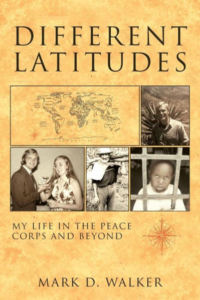
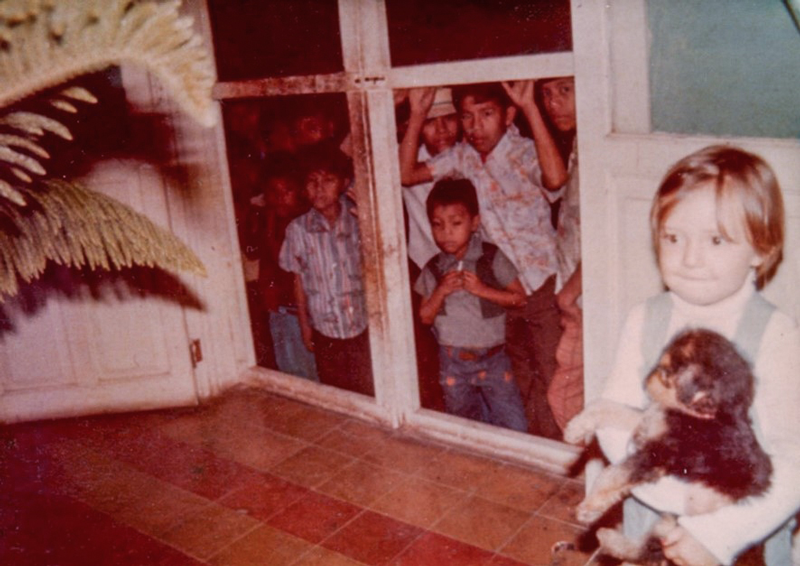
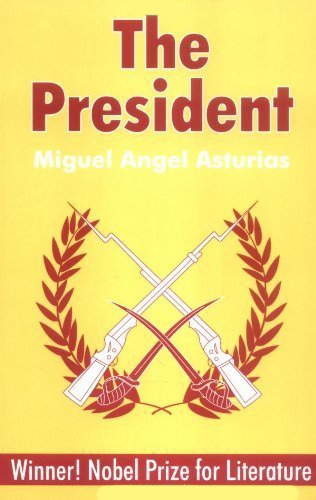
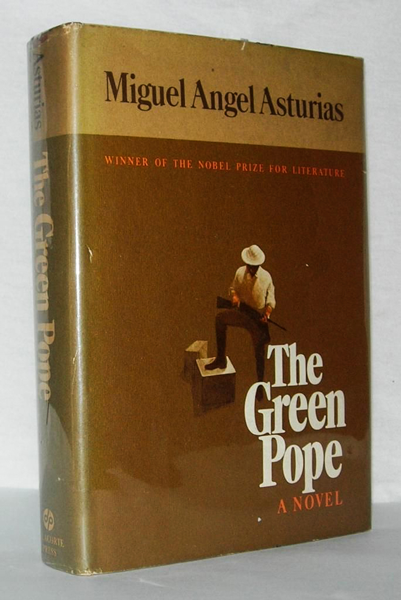
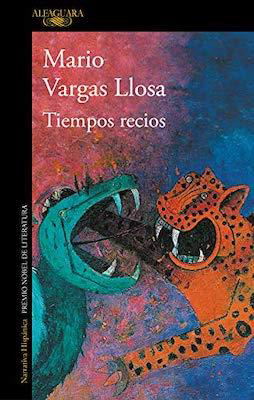
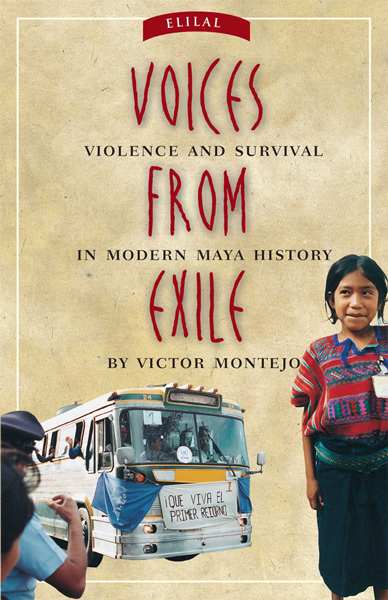
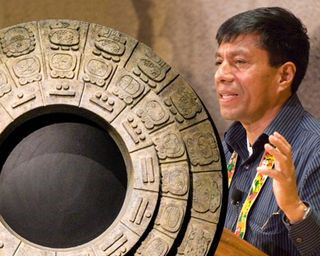
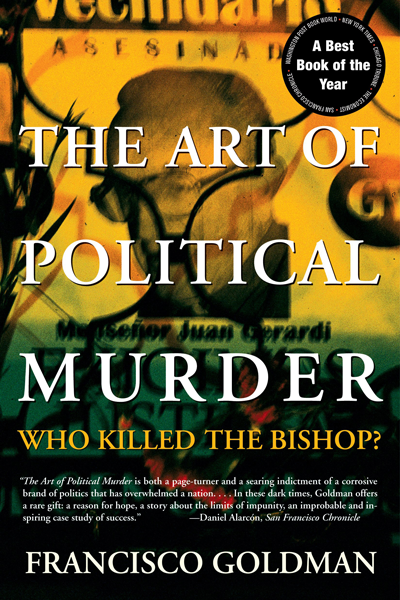
Mark has more knowledge of Guatemalan politics, society and history than any other American. He also has empathy for the Guatemalans struggling to survive in their own homeland or seeking a better life elsewhere. All of his writing about this tortured country will enhance your understanding of the social justice sought by so many, Guatemalan or other.
What a beautiful love story not only to your wife but Guatemala. Thank you for a knowledgeable, well-written piece.
Mark it was a privilege to read your rich, evocative piece. I look forward to reading your other work . When my husband and I served, it was staggering how many people we met just walking around like regular folk, but carrying always the personal trauma of genocide like a tinaja full of water. I haven’t read any Francisco Goldman since Long Night of White Chickens. I’ll be getting back to him as well.
Pingback: Million Mile Walker Dispatch: My Saddest Pleasure, A Personal Reflection, February 2022 Issue – Million Mile Walker